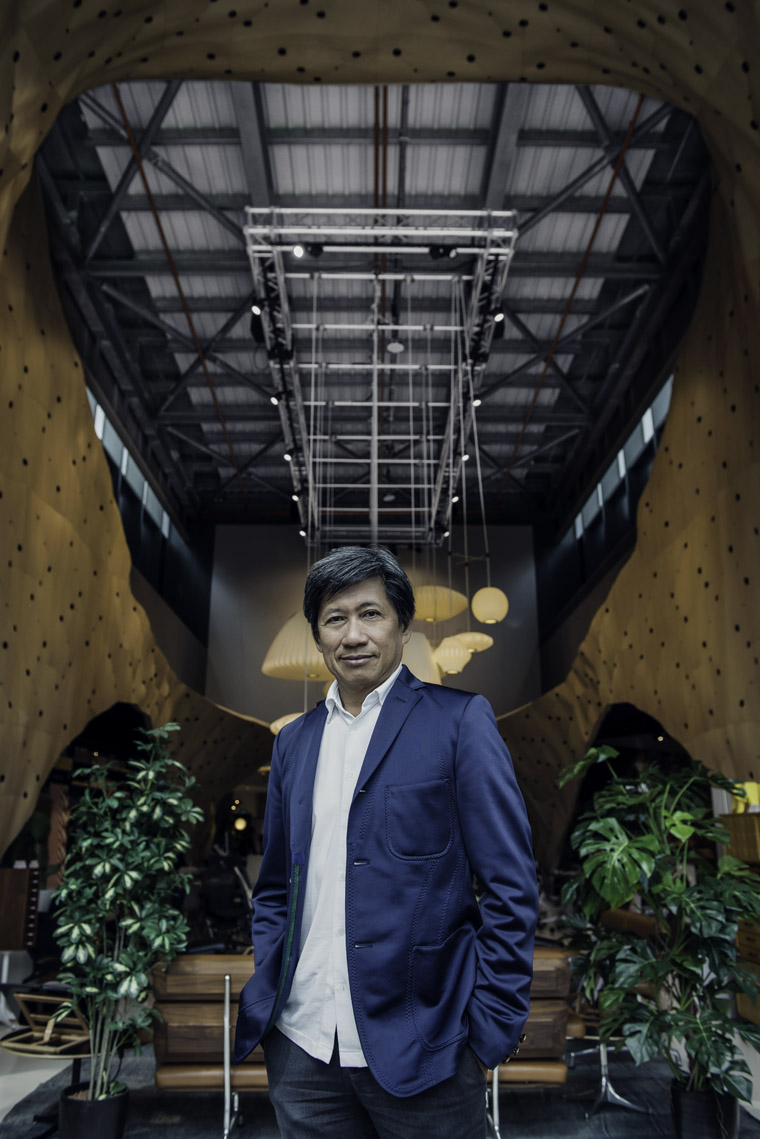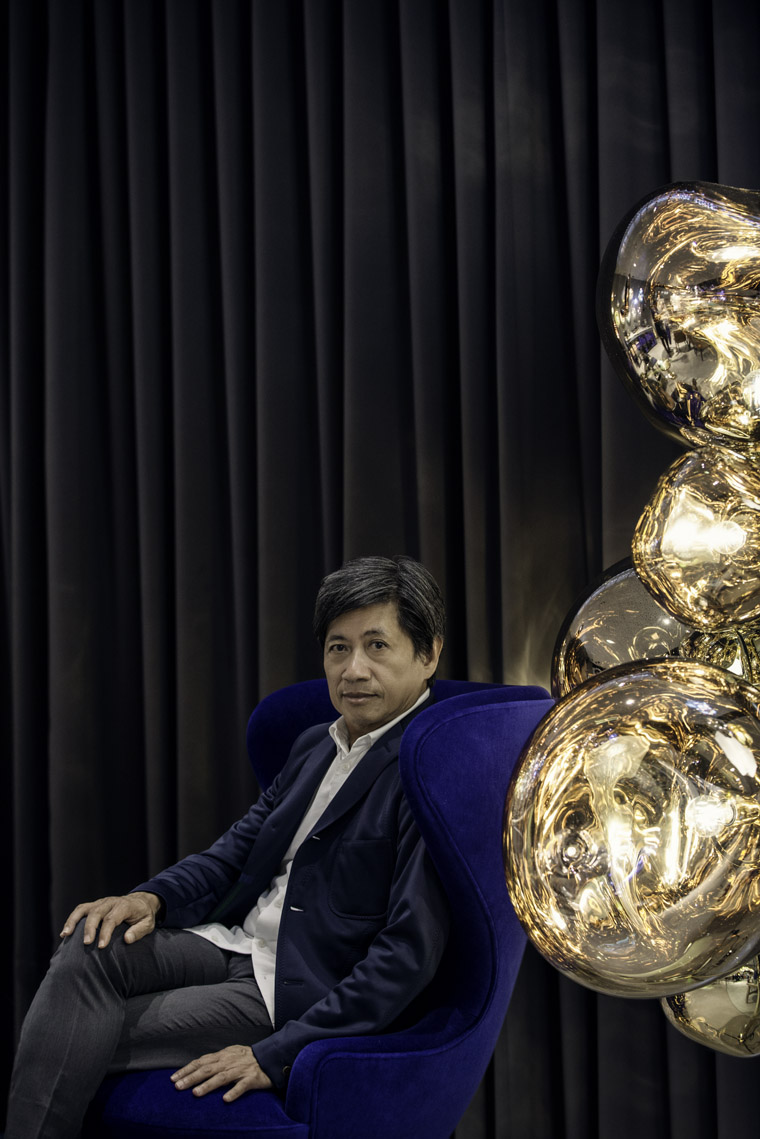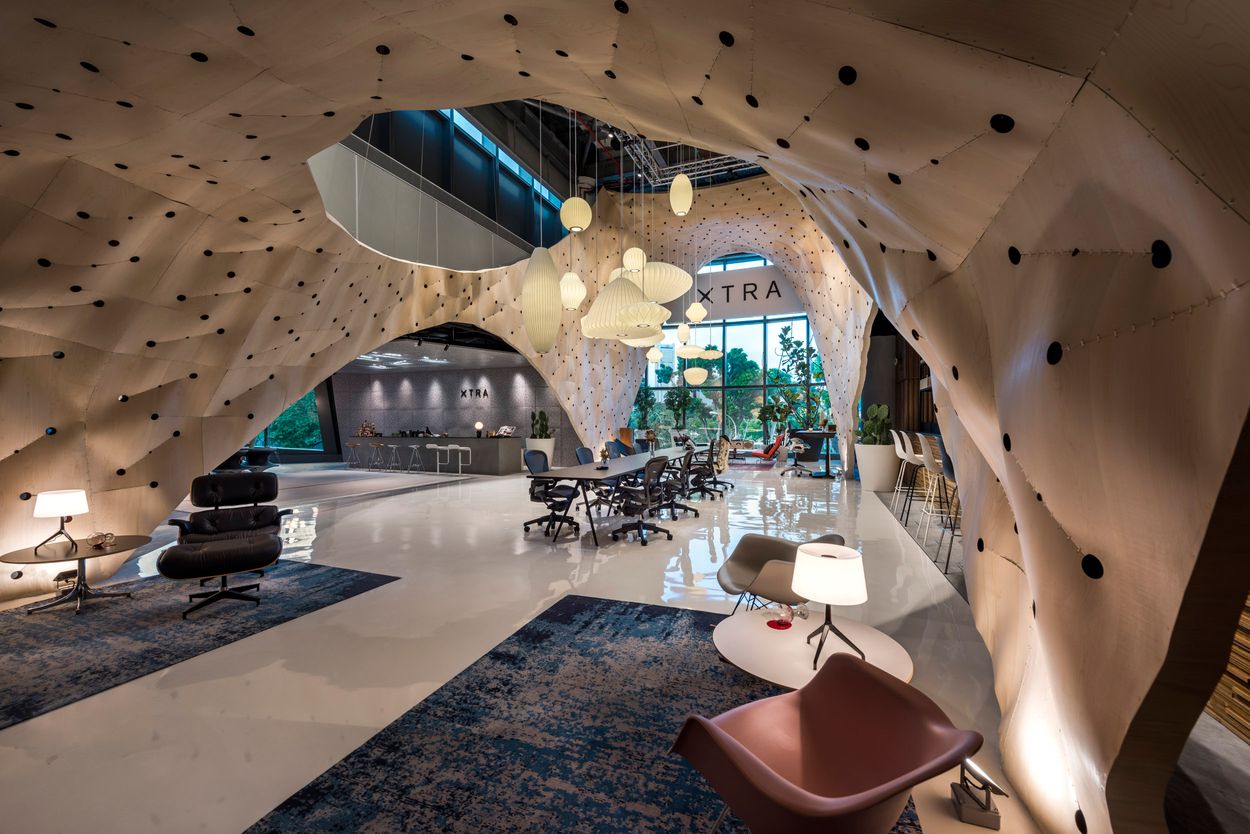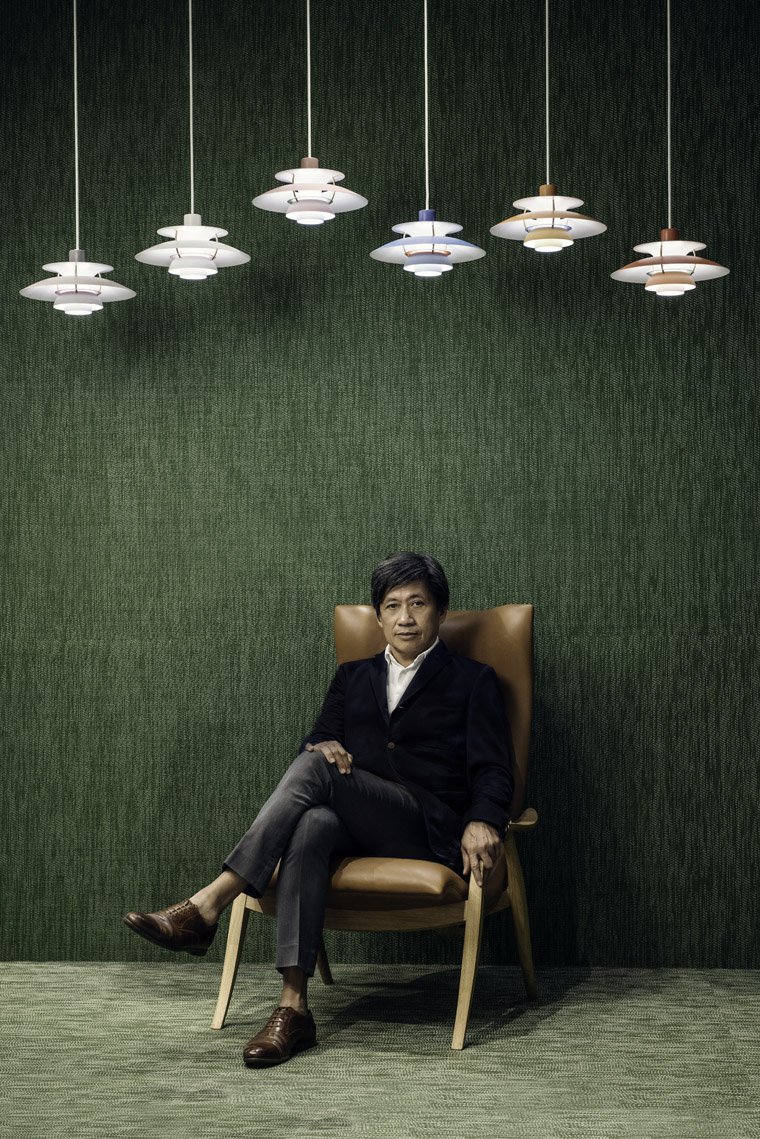“Honestly, I think what we’ve done in the last 30 years is no big deal,” Mr. Lim Choon Hong says with a laugh. “We’re just a business that’s been able to stay sustainable and we’ve grown slowly. It’s not as if it happened yesterday, so I think what we’ve been able to achieve is nothing major or fantastic.”
Those are modest words indeed, especially considering Mr. Lim is speaking of Xtra, the premium multi-label design and furnishing business he founded and owns, a 13,000-sqft behemoth that has occupied pride of place at Marina Square since early 2017. International brands such as Magis, Tom Dixon, Moroso call it home in Singapore, and the company has carried Herman Miller pieces and products locally for two decades. Prior to its recent move, Xtra spent more than 20 years in Park Mall, where its retail space grew from 2,000sqft to 23,000sqft.
The current emporium is a far cry from its unpretentious origins: Xtra started out in 1989 as an alternative eclectic design store in a pre-war shophouse on Tanjong Katong Road. “I don't think we ever had such a conscious thought about why we did it,” Mr. Lim says about how the business was born. “We started off pretty naïve: We didn't know what to expect in the business or what kind of pitfalls to look out for. Probably there was an innate desire to have a store and surround myself with beautiful things.

“In hindsight, I think some things work out better because you're naïve and not aware. If you're aware of too many things, chances are you wouldn't have gone into it,” the 61-year-old adds with a chuckle.
From a capital of $10,000 (and a budget of just $5,000 for his first buying trip to Salone Internazionale del Mobile di Milano), Mr. Lim went on to amass for Xtra a suite of brands that embody bold and distinctive designs conceptualized by luminaries from Patricia Urquiola to Paola Navone. “I remember when we celebrated our 20th anniversary, we had a big party in Park Mall for more than 600 people, and for once we really felt like we were one of the main players in the market,” Mr. Lim recounts. “When you look back, for perspective, there's so much to be proud of, the way we grew from a small business to be where we are today, and (the gratitude and appreciation we feel towards) the staff we have and the opportunities the brands and banks have given us — every factor along the way has been very favorable to us.”
- TRYING TIMES
- ARTISTIC LEGACY
Trying Times
Xtra has endured its share of adversity over the decades. Calamities such as the 1997 Asian financial crisis, SARS and the Lehman Brothers collapse wreaked havoc on international markets, but the company weathered those storms without having to retrench staff, Mr. Lim says. Maintaining its foothold in the contract business offset the beating that the retail business suffered during those downturns, and that underscored the value of diversification. Today, Xtra is involved in indoor, outdoor and office furniture; wardrobes and kitchens; and architectural surfaces — not putting all its eggs in one basket, Mr. Lim describes. Xtra has stayed close to home, choosing not to expand internationally (beyond a small shop in Malaysia.) “Venturing out of Singapore involves finding the right partners,” Mr. Lim explains. “We won't say no, but we know that we need to meet certain challenges and we've got to be realistic. All I can say at this moment is, we know the game and we can do it better here than anywhere else.”
Over the years, Xtra has honed its particular style and aesthetic by selecting partners based on a balanced consideration of consumer expectation, design quality, brand identity and cost. “I think today the market is quite enlightened: People want to see original design,” Mr. Lim says, “and we want to find brands that have an interesting story to tell.
“Tom Dixon, for example, is just one of a kind. Magis is also interesting; the way it commissions designers and creates its products is something you can't put in a box. So, in Magis, in Tom Dixon, you see a little bit of Xtra.”
These days, Mr. Lim notes a slowdown in the retail climate and competition from online retailers and parallel importers as significant challenges on the horizon. “Parallel importing and online business will influence your (purchasing) decisions going forward,” he says. “Consumers may gravitate to purchasing online, but some things will stay the same. For example, a large sofa, I don't think you'll buy it online if it costs $20,000; you’ll want to test the comfort and choose the materials. But items like lighting and chairs are easy to order online, so I think our future is a combination of both.

“Within these challenges, we try to offer the right experience when you come to the store to shop, to be as competitive as we can in terms of pricing, to be conscious of our service level and our staff's knowledge, and to continue to look for new products.”
Another source of concern is steel and aluminum tariffs, lobbed between the US and its trading partners starting mid-2018, that have propelled Herman Miller into the news. Bloomberg reported last July that the US-headquartered furniture manufacturer was considering shifting production to its non-US plants to circumvent any resulting increase in costs. “How (the tariffs) translate into our selling price, we still have to see,” Mr. Lim opines. “I’m sure (Herman Miller) will have to respond to make its products competitive, and if it’s a problem for us, it’ll be a problem for all our competitors.” Logistics and labor costs are also a potential stumbling block. “Today (they) can be substantial,” Mr. Lim says. “Labor costs have gone up so high, so we try to keep ourselves lean, and manage the in-house team and rely on sub-vendors.”
Keeping Xtra’s merchandising fresh is one way the company continues to respond to changes and evolve its offerings, and a lot of thought goes into selecting the products and pieces. “We often question our choice of colors, fabrics, leather and wood because we've been to so many (furniture) fairs, and the way Europeans look at it is so different from us,” Mr. Lim explains. “They tend to be more adventurous, while we're a bit more controlled, so we want to moderate that and communicate it to our buyers and still give the impression that it's something new and different, and more in line with the times. For me, communicating that feeling is the most challenging and interesting, to create a look that makes you feel you're transported to another place, but you can imagine it can happen to your house.”
The designer furniture industry hasn't been an easy sell, Mr. Lim adds. “When we started, we always thought the market isn't big; even today, though the population has grown, I think it still hasn't gotten to a level that's sustainable for the designer furniture companies in Singapore,” he says. “I think part of the reason is that Singaporeans are affluent and successful in their careers, but as a cultural group we're pragmatic, so when it comes to spending on furniture, which isn't a top priority, they tend to be a little careful.
“I believe eventually the younger ones, when they get really excited about design, will want to be consuming it, to be part of it. I think when that day comes, the business will be interesting for us.”
 Xtra at Marina Square
Xtra at Marina Square
- TRYING TIMES
- ARTISTIC LEGACY
Artistic Legacy
Mr. Lim would know a thing or two about being a youth who’s hungry for art and design. The son of a commercial artist, who designed window displays and exhibitions, and the grandson of a craftsman specializing in decorative features, who worked on the Haw Par Villa theme park, Mr. Lim was passionate about oil and acrylic painting at school, and was a member of the art club. (“We printed T-shirts for the school, and every day my uniform was splashed with colors,” he recounts with a hearty laugh. “My teacher accused me of doing it deliberately to show people I was artsy.”) He intended to enroll at NAFA to become an artist, but his father encouraged pragmatism, so architecture was the compromise. However, after graduating amid Singapore’s first post-independence recession, in 1985, and following months of unemployment, he found his way into the furniture business, where he has stayed ever since.

A self-described design enthusiast, Mr. Lim aspires for Xtra to become part of the design network culture in Singapore someday. “If you go to certain countries, sometimes the design store is a destination, you go to see the store and that tells you how stylish the consumers there are,” he says. “I wish we could be more of that, because if you like design, you'll like to have your country become more design-oriented.”
More immediate plans for Xtra include looking into strengthening its digital marketing and online presence, rearranging floorspace at the Marina Square store to create more room for retail, and diversifying into architectural surfaces. The retail business (and the slowdown thereof) remains a perennial concern, while the contract business is going strong, owing to its presence in sectors from corporate commercial to institutional, hospitality, outdoor and airports.
When asked for his outlook on the economy and his take on whispers of an impending recession, Mr. Lim responds with good-natured laughter. “In our past 30 years, we've gone through three of those,” he says. “I think the trick is to not live in fear.” He declines to prognosticate where Xtra and the furniture industry are headed, saying: “I think sometimes you cannot try to see too far, because 30 years ago we weren't able to see where we are today. So, I just make sure that my team is engaged and fulfilled and meeting challenges, and that we're always keeping our eyes open for new trends, developments and opportunities.”
Through the course of developing Xtra to its current scale, Mr. Lim acknowledges the entities that have had a hand in shaping the business. “If it were just me, I think the business would have failed, but I had the fortune of having the right people, opportunities and brands all coming together,” he says. “Today we can't take for granted that any business will survive, and the fact that we've survived 30 years, I'm very grateful.”








 Xtra at Marina Square
Xtra at Marina Square





 Back
Back